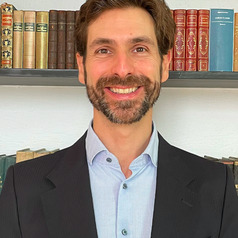
Federico Manfredi Firmian
Lecturer in Political Science, Sciences Po
I am a lecturer in political science at Sciences Po Paris, where I teach undergraduate and graduate courses on international affairs, including the seminars "Understanding Strategic Decision-Making: US Policy in the Middle East," "The War in Syria: US and European Policies," and "The Geopolitics of Energy." I am also an associate research fellow at the Istituto per gli Studi di Politica Internazionale (ISPI); a fellow at the Civil War Paths project of the Centre for the Comparative Study of Civil War at the University of Sheffield; a member of the Ambassador Council of the International Crisis Group; and a member of the editorial board of the journal Small Wars & Insurgencies. I have a PhD from the Sorbonne and a Master's from Harvard, and have published articles in Survival, Small Wars & Insurgencies, Middle East Policy, Asian Affairs, and World Policy Journal, as well as analyses and opinion pieces in the Modern War Institute at West Point, the LSE Middle East Centre, ISPI, and The Guardian. My research is grounded in extensive fieldwork, including in Afghanistan, Iran, Iraq, Syria, Kurdistan, Turkey, Lebanon, Jordan, Israel and the Palestinian Territories, Egypt, Libya, and Tunisia. In Cairo, I was the politics editor of Daily News Egypt, at the time one of the last independent newspapers in Egypt. During the course of my fieldwork, I also lived for extended periods in Beirut and Kabul.
Less ![]()

Fei Gao
Lecturer in Taxation, Discipline of Accounting, Governance & Regulation, The University of Sydney, University of Sydney
Less ![]()
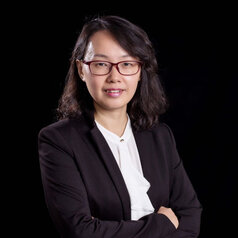
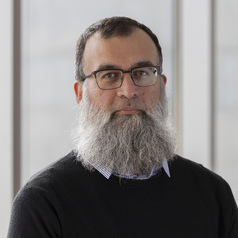
Feisal Subhan
Lecturer in Biomedical Science, University of Plymouth
I am a human physiologist and teach and conduct research at the University of Plymouth. My research interests are education and the lung.
I contribute to the teaching, curriculum developments, course management, assessments, quality assurance of the School of Biomedical and Healthcare Sciences. I also act as an expert resource in human physiology within the School's undergraduate programme, and participate and contribute to research activity within the School.
Less ![]()
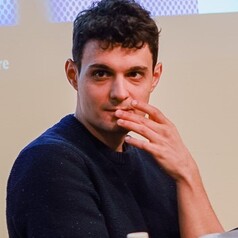
Félicien Faury
Postdoctorant, CESDIP, Université de Versailles Saint-Quentin-en-Yvelines (UVSQ) – Université Paris-Saclay
Félicien Faury est politiste et sociologue, docteur en science politique et postdoctorant au Cesdip (Centre de recherches Sociologiques sur le Droit et les Institutions Pénales). Ses travaux portent sur l'extrême droite française, les partis politiques, le vote, les processus de politisation.
Il a récemment publié :
- Des électeurs ordinaires. Enquête sur la normalisation de l'extrême droite, Seuil, 2024
- (avec Elisa Bellè), "Going Local, Going Mainstream? Ethnographic Study of Two French Cities Governed by the Rassemblement National", Government and Opposition, 2024:1-16.
- « Race et extrême droite. Réflexions sur les conditions raciales d’une recherche sur le Rassemblement national », Marronnages, vol. 2, n°1, 2023, p. 37-52
- (en codirection avec Safia Dahani, Estelle Delaine, Guillaume Letourneur) Sociologie politique du Rassemblement national. Enquêtes de terrain, Presses Universitaires du Septentrion, 2023.
- “Everyday gendered Islamophobia: exploring ordinary attitudes toward Muslim women in Southern France”, Gender, Place & Culture, 2023
- « Extrême droite partisane et rôles municipaux. Le travail de représentation d’élus municipaux du Front National », Pôle Sud, 2021/1 (54), p. 139-153
- (avec Guillaume Letourneur) « Un culte du chef ? Culture militaire et verticalité organisationnelle au Front national », Revue française de science politique, 2020/3 (70), p. 399-420
Less ![]()
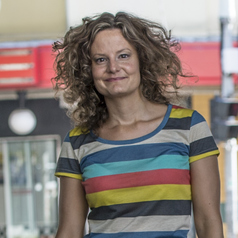
Felicity Castagna
Lecturer, Creative Writing, Western Sydney University
Felicity Castagna has published four novels for adults and young adults including her most recent book, Girls In Boys’ Cars which received The Victorian and Queensland Premier’s Literary Award for YA and is now being adapted for stage and screen. Her previous novel, No More Boats was a finalist in the 2018 Miles Franklin Literary Awards and is published internationally by Europa. Her young adult novel The Incredible Here and received The Prime Minister’s Award for Young Adult Literature as well as the IBBY Award and was a finalist in several other awards including the CBCA Book of the Year Award. She has worked with artists in many different fields to produce work for The Sydney Opera House, The Sydney Festival, The National Theatre of Parramatta, The Four Winds Festival and many other places as well as with The Finishing School Collective. Her creative non-fiction and critical responses to literature, art and home are published both here and internationally on platforms such as The Sydney Review of Books, Electric Literature, LitHub, The Griffith Review and ABC radio and television.
Castagna is a highly experienced teacher, speaker, writing mentor and teacher educator who has facilitated workshops everywhere from schools to community arts centres to correctional centres and has helped to establish, promote and run many writing and storytelling programs. She is currently a Lecturer in Creative Writing at The Writing and Society Research Centre, Western Sydney University.
Less ![]()
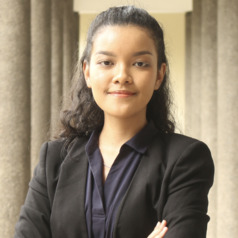
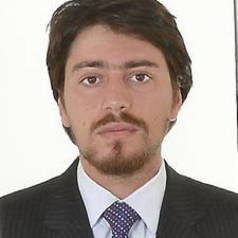
Felipe Antunes-de-Oliveira
Felipe Antunes de Oliveira is a Doctoral Researcher and an Associate Tutor in the Department of International Relations of the University of Sussex. He is also a professional diplomat of the Brazilian Ministry of External Relations.
His interest areas include Global Political Economy, Marxist Theories of International Relations, Dependency Theories and Uneven and Combined Development. He is specialised in Latin American contemporary political economy.
His current research compares neoliberalism and neodevelopmentalism in Brasil and Argentina.
Less ![]()
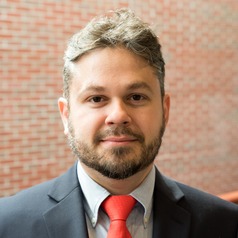
Felipe Bastos Gurgel Silva
Assistant Professor, Trulaske College of Business, University of Missouri-Columbia
Felipe B G Silva is an assistant professor at the University of Missouri. His research revolves around macroeconomics, political economy, and financial economics, and has been published in several academic outlets.
Less ![]()
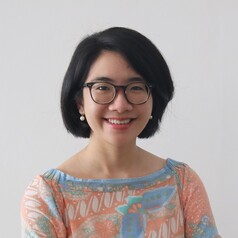
Felippa Amanta
PhD Candidate, Environmental Change Institute, University of Oxford
Felippa Amanta is a PhD student at the Environmental Change Institute, University of Oxford. Her research looks at digitalisation in households, consumption, and climate change. Previously, she worked as Head of Research at a Jakarta-based think tank, Center for Indonesian Policy Studies.
Less ![]()
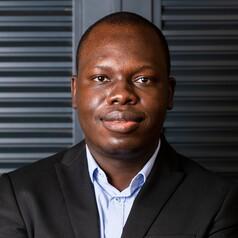
Felix Dube
Senior Lecturer in the Department of Public Law, Faculty of Law, University of Pretoria, University of Pretoria
Dube Felix Dube is a Senior Lecturer in the Department of Public Law, Faculty of Law, University of Pretoria, where he teaches environmental law and administrative law. His research interests lie in administrative law, human rights and environmental law. He is also an assistant editor for the Journal of Law, Society and Development.
Less ![]()
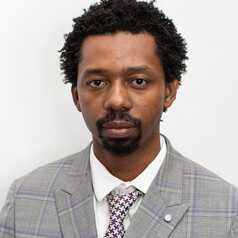
Felix Mambo
Country Economist - IGC, London School of Economics and Political Science
Félix Mambo is an economist at the International Growth Centre (IGC) in Mozambique. Before joining the IGC, he worked as a Research Consultant for UNICEF, supporting public finance initiatives for children and advising lawmakers on financial oversight. Between 2016 and 2018, he collaborated with UNU-WIDER as part of the Inclusive Growth program in Mozambique.
Ricardo Santos is a Research Fellow with UNU-WIDER at Mozambique..
He holds a PhD in Economics from the Institute of Development Studies (IDS) at the University of Sussex, a Master degree in Economics from the Nova University in Lisbon and an MA in Development Studies from IDS. His doctoral research examined the post-conflict labour market and education sector in Timor-Leste, looking at the medium-run impact of exposure to violence and conflict produce on the households ’choices regarding education, namely inquiring on impacts over the economic incentives for education. His previous work in the development field includes voluntary work for one year in Timor-Leste as a member of a Portuguese NGO and, Program Manager for Timor-Leste and Angola and Deputy Executive Officer of the same NGO. In his previous position, he was is Social Policy Specialist on Public Finance for Children with UNICEF Mozambique.
Less ![]()

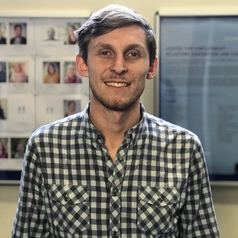
Felix Schulz
Research Fellow, University of Leeds
Interdisciplinary researcher working on sociological and social-psychological perspectives around climate change. I am interested in institutional and individual level factors influencing climate change actions and perceptions. Of particular interest to my research are workers and labour unions in the social-ecological transformation and the role of value orientations.
Less ![]()


Femke Mulder
Postdoctoral Research Fellow, Anglia Ruskin University
Femke is a social scientist working in the field of disaster and humanitarian studies. She specialises in knowledge management for disaster mitigation, response and recovery – with a special focus on localised, participatory and inclusive approaches. She has a university teaching qualification (UTQ).
Femke has a background in organisation sciences and social anthropology. Her research focuses on knowledge management (KM) in disaster and humanitarian settings.
To date, she has studied disaster KM in the context of earthquakes, climate change, global health (esp. HIV/AIDS), conflict and displacement. She is trained and experienced in both qualitative and quantitative social research methods.
Femke has over 15 years of experience in programme management and policy research for government and global NGOs.
Spoken Languages
English
Dutch (native)
Spanish (professional working proficiency)
Research interests
Disaster management
Knowledge management
Sociology of disasters
Humanitarian studies
Organisation sciences
Social anthropology
Qualifications
PG Dip Social Research Methods, The Open University
MA Social Anthropology, SOAS University of London
BA International Development and History, SOAS University of London
Memberships, editorial boards
Advisory Board Member, DATAWAR project, Sciences Po Lille, France
Member, International Humanitarian Studies Association, International Institute of Social Sciences, the Netherlands
Guest editor, Emerging voices and pathways to inclusive disaster studies, Disaster Prevention and Management (2022) 31(1-2).
Less ![]()
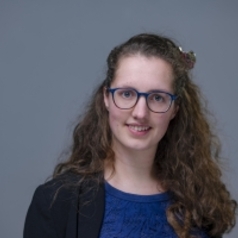
Femke Nijsse
Lecturer at Global Systems Institute, University of Exeter
I'm a complexity scientist with experience modelling climate, energy systems and the economy.
I'm working on innovation in the energy system and the transition towards sustainable energy. I have been involved in the EEIST project led previously by Jean-Francois Mercure. The project seeks to inform energy policy in China, Brazil and India, as well as the UK and the EU. As part of this project, I've improved the representation of the power sector in the energy-economy-environment model E3ME-FTT. Major energy technologies in E3ME-FTT are represented with evolutionary economics, so that the diffusion of a new technology follows an S-curve. I've improved the power sector model by improving the representation of learning, getting higher-quality data and improve the representation of energy storage.
As a next step, I'm involved in developing a submodel of E3ME-FTT for flexibility, storage and hydrogen to gain a better understanding of the diffusion of high shares of variable renewables, and the way sector coupling can help. This should inform what type of policies are effective now that the major barriers towards diffusion are changing (supply chain / grid stability rather than costs)
I did my PhD within mathematics in the Exeter Climate Systems group with Peter Cox. It involved finding a theoretical basis for emergent constraints and improving (statistical) techniques. For some processes, a group of climate models shows a relationship between a past and future variable. Measurements of the first allows us to exploit this relationship and get a better estimate of our future climate. My focus was on decadal variability, historical warming and climate sensitivity.
Less ![]()
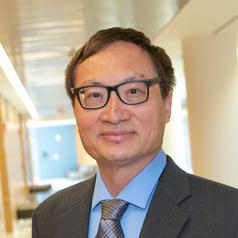
Fen-Biao Gao
Professor of Neurology, Gov. Paul Cellucci Chair in Neuroscience Research, UMass Chan Medical School
Dr. Gao is currently the Paul Cellucci Chair in Neuroscience Research and Professor of Neurology at the UMass Chan Medical school. He received his PhD degree from Duke University and did postdoctoral trainings at UCL and UCSF. He started his own lab at the Gladstone Institute of Neurological Disease at UCSF in 2000 and moved to UMass Chan in 2010. Dr. Gao received a Jacob Javits Neuroscience Investigator Award from the NINDS/NIH and a McKnight Neuroscience of Brain Disorders Award from the McKnight Foundation. He was also a Sloan Research Fellow in Neuroscience and a Klingenstein Fellow in Neuroscience.
Less ![]()
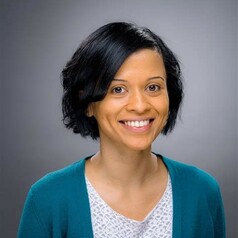
Fenella Amarasinghe
PhD Candidate, Faculty of Education, York University, Canada
I have worked in education for over 15 years, in the capacity of teaching, student services, leadership and research in K-12 and higher education. Currently I am a full-time PhD candidate in the Faculty of Education at York University. My research interests are in engineering ethics education, philosophy of technology and ethics as pedagogy. My PhD research is tied to a cross-institutional research project with researchers from the University of Manitoba, University of Waterloo, Memorial University and York University. We are investigating technological stewardship and pedagogy within and beyond the Technological Stewardship Practice Program which was launched by the Engineering Change Lab and MaRS Discovery District. Additionally, I teach a first year engineering ethics, creative problem solving and communications course at the Lassonde School of Engineering at York University, and I sit on the Joint APPRC-ASCP Task Force on the Future of Pedagogy at York University. Prior to beginning my PhD, I was a Senior Manager, Education Planning and Development at Toronto Metropolitan University where I led culture change related to advancing pedagogy and ethics in engineering education.
Less ![]()
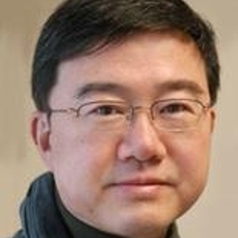
Feng Wang
Professor of Sociology, University of California, Irvine
Feng Wang in an expert on Chinese demographics and professor of sociology at University of California, Irvine. His research interests: include comparative demographic, economic, and social processes; social inequality in state socialisms and contemporary Chinese society.
Less ![]()

Fengshi Wu
Associate Professor in Political Science and International Relations, UNSW Sydney
Fengshi Wu is an Associate Professor in Political Science and International Relations at the School of Social Sciences, University of New South Wales (UNSW), Sydney, Australia. She is a world leading scholar in environmental politics, state-society relations, and global governance with the empirical focus on the Asia Pacific region (esp. East Asia, Southeast Asia, and Central Asia). Her recent research and teaching interests highlights the global transformation of the energy system rapidly accelerated by the challenges and geo-politics of climate change.A graduate of the University of Maryland (PhD in political science) and Beijing University (BA Hons International Relations), she has been a Visiting Professor at the Harvard-Yenching Institute (2008-2009) and the Sciences Po, Paris (Nov. 2024).
Less ![]()
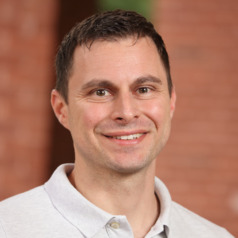
Ferdinando Fioretto
Assistant Professor of Computer Science, University of Virginia
I am an assistant professor of Computer Science at UVA. I lead the Responsible AI for Science and Engineering (RAISE) group where we make advances in artificial intelligence with focus on two key themes:
AI for Science and Engineering: We develop the foundations to blend deep learning and constrained optimization for complex scientific and engineering problems.
Trustworthy & Responsible AI: We analyze the equity of AI systems in support of decision-making and learning tasks, focusing especially on privacy and fairness.
My group is generously supported by the National Science Foundation, Google, Amazon, and the University of Virginia. Before joining the University of Virginia, I was an assistant professor at Syracuse University. Prior to that I was a postdoctoral research associate at the Georgia Institute of Technology and a research fellow at the University of Michigan.
Less ![]()
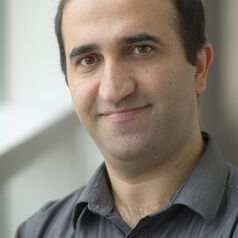
Fereidoun Rezanezhad
Research Associate Professor, Department of Earth & Environmental Sciences, University of Waterloo
Dr. Fereidoun Rezanezhad is a Research Associate Professor in the Department of Earth and Environmental Sciences at University of Waterloo. He received his PhD in 2007 from the University of Heidelberg, Germany, in soil and environmental physics. His research broadly focuses on soil-water-atmosphere interactions and the effects of climate change and management practices on carbon and nutrient biogeochemistry in natural and disturbed ecosystems. Rezanezhad has extensive field experience in terrestrial and wetland ecosystems, specifically with soil and water quality, and nutrient and greenhouse gas flux monitoring. His current research targets cold regions Critical Zone science with a particular focus on hydro(bio)geochemical soil processes in cold-temperate to subarctic and permafrost regions.
Less ![]()


Fergus O'Leary Simpson
Postdoctoral research fellow, University of Antwerp
Fergus O'Leary Simpson is a postdoctoral researcher at the University of Antwerp’s Institute of Development Policy (IOB). His research looks at the intersection of environmental conservation, various forms of extraction and violent conflict in eastern DRC’s South Kivu Province. He obtained a PhD from the International Institute of Social Studies (ISS) in the Hague, which is part of Erasmus University.
Less ![]()

Fern R. Hauck
Professor of Family Medicine and Public Health Sciences, University of Virginia
Fern R. Hauck, MD, MS is currently the Spencer P. Bass, MD, Twenty-First Century Professor of Family Medicine and Professor of Public Health Sciences at the University of Virginia School of Medicine. She is also the director of the International Family Medicine Clinic at UVA.
Dr. Hauck's primary research focuses on sudden unexpected infant death, including sudden infant death syndrome (SIDS). She has studied risk factors for SIDS and other unexpected infant deaths, especially focusing on African-American and other minority communities. She has also studied bedsharing practices cross culturally and preventive strategies, such as pacifier use. An important theme of Dr. Hauck's research is eliminating disparities in health services and outcomes. She is a member of the American Academy of Pediatrics Task Force on SIDS and is an advisor to several other organizations and federal agencies that focus on infant health and safety.
Her other professional passion is global health and caring for refugees. She started the International Family Medicine Clinic in 2002, which serves the refugee population of Charlottesville.
Less ![]()
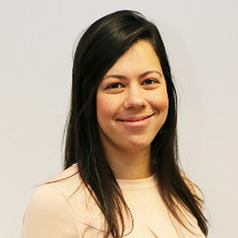
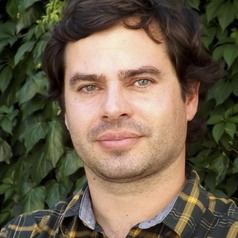
Fernando Camacho Padilla
Profesor contratado doctor, Universidad Autónoma de Madrid
Fernando Camacho Padilla. Doctor en Historia por la Universidad Autónoma de Madrid (UAM) y la Pontificia Universidad Católica de Chile en convenio de cotutela. Actualmente es profesor del Departamento de Historia Contemporánea de la UAM. Ha realizado estancias de investigación en la Universidad Nova de Lisboa, la Universidad de Santiago de Chile, y en la Universidad de Teherán, entre otras. Ha sido invitado a impartir cursos y talleres académicos en centros como la Universidad Allameh Tabataba’i de Teherán, la Universidad del Punjab (Lahore, Pakistán), y la Universidad de Azerbaiyán de Lenguas Extranjeras. Antes de su incorporación a la UAM fue profesor en las universidades de Estocolmo, Uppsala, Södertörn y Dalarna (Suecia).
Sus principales publicaciones tratan sobre las relaciones entre Chile y Suecia, así como las Comisiones de la Verdad en el Cono Sur. En los últimos años, sus investigaciones se han centrado en las relaciones contemporáneas de América Latina con el mundo islámico, especialmente durante el periodo de la Guerra Fría.
Less ![]()
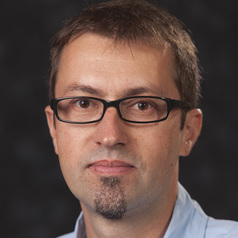
Fernando Lara
Associate Professor of Architecture, University of Texas at Austin
Fernando Luiz Lara is a Brazilian architect with degrees from the Federal University of Minas Gerais (BArch, 1993) and the University of Michigan (PhD, 2001). Prof. Lara's interests revolve around Latin American 20th century architecture with emphasis on the dissemination of its values beyond the traditional disciplinary boundaries. His PhD dissertation on this topic was expanded into a book: The Rise of Popular Modernist Architecture in Brazil, published in 2008 by the University Press of Florida. In his several articles Prof. Lara has discussed the modern and the contemporary Brazilian architecture, its meaning, context and social-economic insertion. His latest publications look at the modernist vocabulary and spatiality being appropriated by the humblest favela dwellers.
A member of the Brazilian Institute of Architects and the Brazilian DOCOMOMO, Lara has also been active in his native country as a critic, researcher and educator. A licensed architect in Brazil, Lara has designed many structures, alone or in partnership with others. His current interest in the favelas has turned into opportunities to engage with public policy at the municipal level as well as collaborations with local firms designing public spaces in informal settlements. In 2005 he founded Studio Toró, a non-profit devoted to the challenges of water conservation and urban flooding in Latin America.
At the University of Texas at Austin Fernando Lara teaches seminars on 20th century Latin American architecture and urbanism, as well as studios related to the continent's current urban challenges.
Less ![]()

Fernando Abreu Oliveira
Mestre em Biociências e técnico de laboratório em Química, Universidade Federal do Oeste do Pará (UFOPA)
Less ![]()

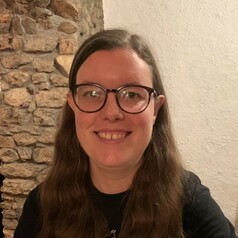
Ffion Reynolds
Honorary Research Fellow, Cardiff University
I am an archaeologist specialising in the prehistory of Britain and Ireland. I trained as an archaeologist at Cardiff University, completing my PhD at the university, focusing on the rock art of the Neolithic passage tombs of Newgrange, Knowth and Dowth in Co. Meath, Ireland, and then broadening my research interests to include the subject of worldview; studying shamanism, totemism and animism.
As part of my PhD in 2008, my research took me to South America, where I worked closely with the Shipibo tribe, the indigenous people along the Ucayali River in the Amazon rainforest in Peru. My rock art research took me to Namibia in 2017, when I worked with the archaeology department at the University of Namibia, Windhoek.
I joined Cadw in 2011, the historic environment service for the Welsh Government, to work as a community archaeologist in the south Wales area. Currently, I oversee the public programmes for Cadw, across 130 sites in Wales.
I co-direct a public archaeology project in the multi-period landscape around the important site of Bryn Celli Ddu Neolithic passage tomb, on the island of Anglesey.
Less ![]()
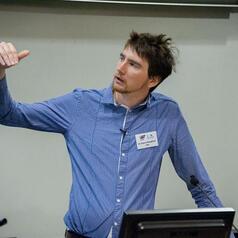
Fiacre Rougieux
Senior Lecturer, Photovoltaic and Renewable Energy Engineering, UNSW Sydney
Fiacre Rougieux has a PhD from the Australian National University in the field of photovoltaics and semiconductor materials. Between 2012 and 2018, he was an ARENA Post-doctoral Fellowand subsequently an ARC DECRA fellow at the ANU where he developed high-efficiency and low-cost solar cell concepts including efficiency records and successfully developed a wide range of processes to remove defects in solar cells and improve their efficiency.
Fiacre is currently a Senior Lecturer at UNSW. He has published and co-authored more than 100 papers. His research interests include advanced solar cell processes, system design and solar cell, module and system degradation.
Less ![]()
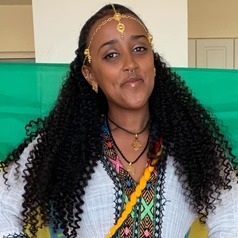
Fikir Getaneh Haile
PhD candidate, Department of Political Studies, Queen's University, Ontario
Fikir is a Joseph-Armand Bombardier CGS Doctoral Scholar in the Department of Political Studies at Queen’s University. With a focus on Ethiopia, her doctoral research utilizes a critical international political economy lens to examine the politics of urban expansion and land access in states with deep ethnic divisions.
Less ![]()
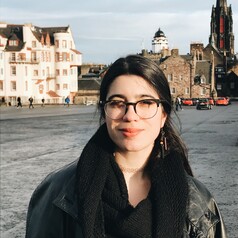
Filipa Melo Lopes
Lecturer in Social and Political Philosophy, The University of Edinburgh
I am a Lecturer in Social and Political Philosophy at the University of Edinburgh.
My areas of research are feminist philosophy, social theory, sexual ethics, and the work of Simone de Beauvoir.
I grew up in Portugal, studied in Norway, received my B.A. from Simon Fraser University, in Canada, and received my Ph.D. from the University of Michigan.
Less ![]()
- Market Data



















